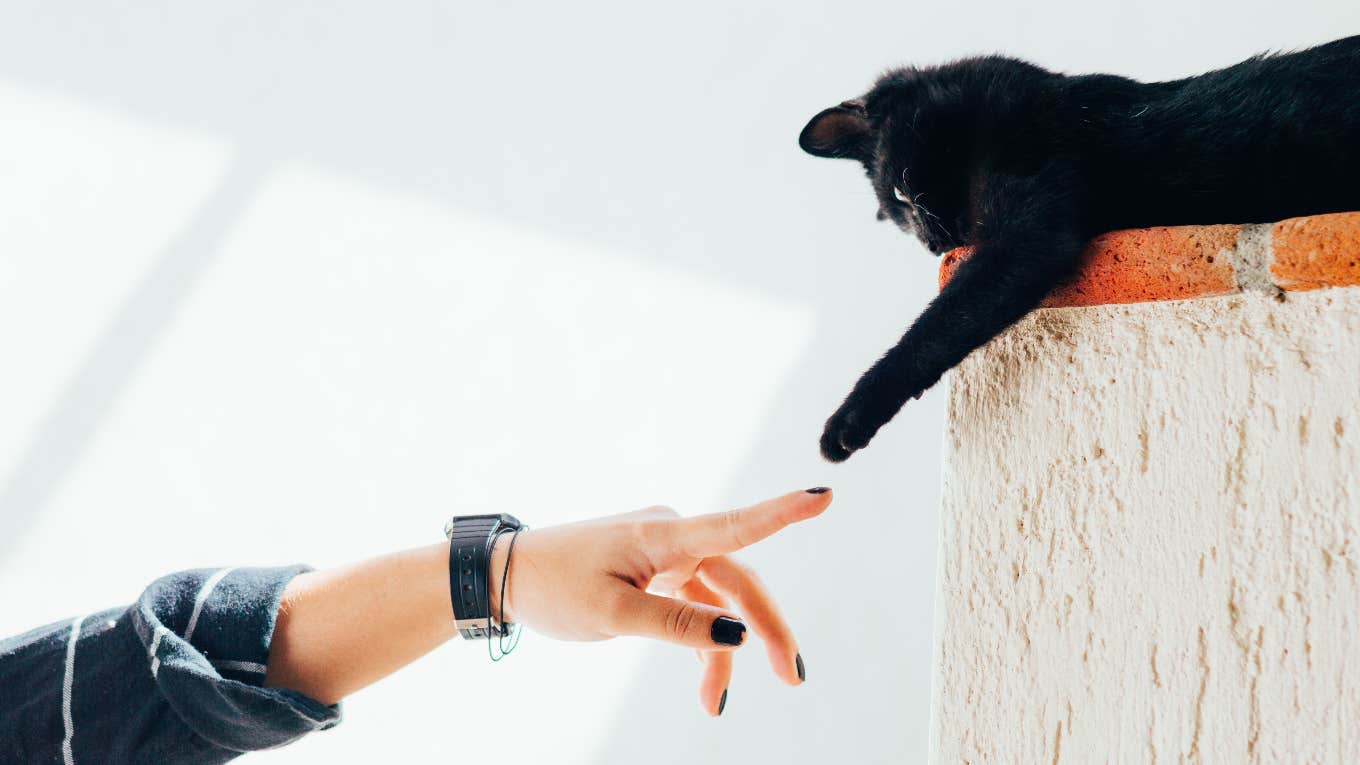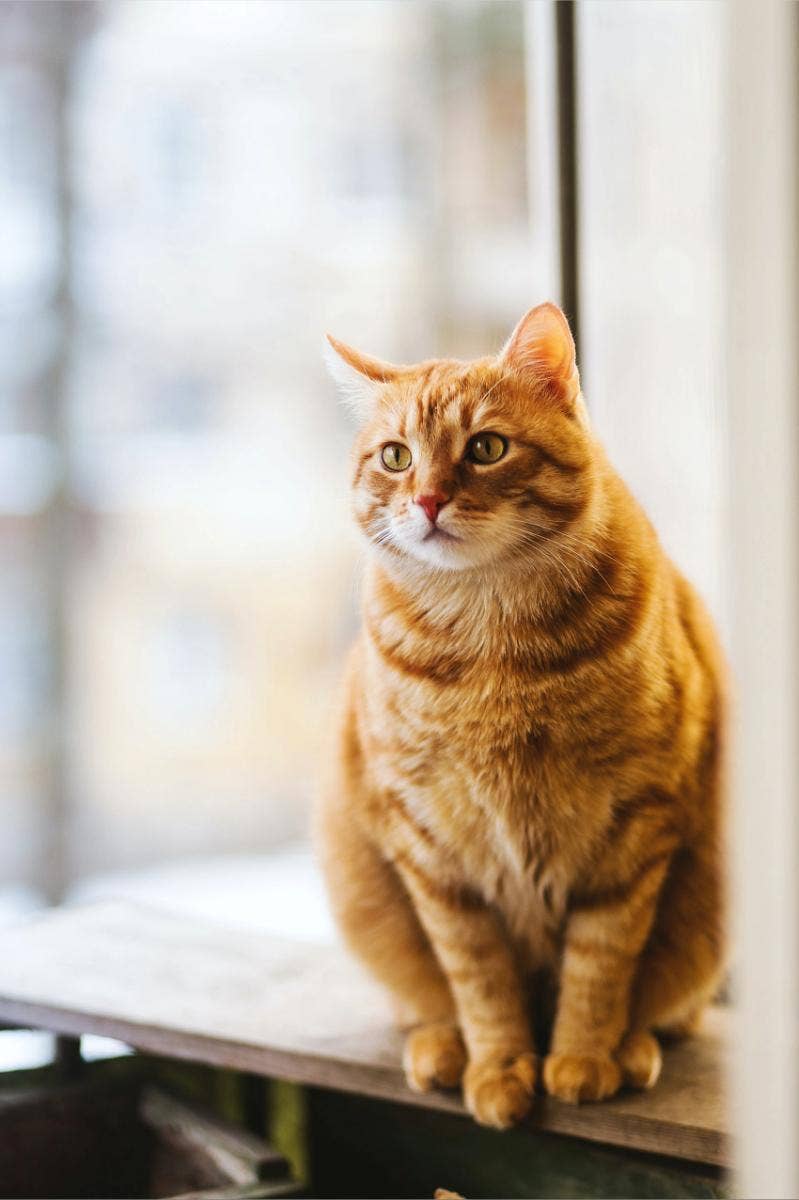Therapist Explains The Moment He Finally Understood The Important Role Pets Play In Our Lives — 'We Need To Better At Acknowledging This'
The love we have for our pets runs deep, and losing them hits us hard.
 Humberto Arellano / Unsplash
Humberto Arellano / Unsplash Therapist and educator Josh Weed shared the way he learned that our pets are more than just animals living in our homes. His realization led him to see that our pets are members of our family, and we love them just as deeply as we love the people in our lives.
The therapist explained that witnessing people grieving them made him finally understand how important pets are.
As a marriage and family therapist, Weed is accustomed to helping people navigate the complexities of human relationships. He acknowledged something he’d learned through his practice that surprised him: Most people view their pets as an integral part of their family systems.
In a series of tweets, Weed explained how he realized that pets are just as important to us as other members of our family. He acknowledged that “pets are more than just ‘man’s best friend,’” stating, “The thing that finally made me see it clearly was grief.”
Weed shared an experience he had multiple times with various clients, noting that they’d be working together in counseling, then “a pet would pass and the work stopped. Like, full halt, unable to move forward, capital T trauma kind of stop. The grief was too real.”
His initial framework for understanding the relationship between people and their pets was rooted in recognizing that owning an animal can improve people’s mental and physical health. He understood that pet owners loved their four-legged friends, yet he didn’t quite get the scope or depth of that love.
After he saw clients fall into major depressive episodes due to the loss of a pet, Weed realized “what should have been obvious all along: Our mammalian attachment to our pets feels like family bond attachments to many of us.”
The intensity of our grief after losing a pet mirrors our despair after losing primary family members.
Weed explained that our pets are family members, but “not just in a cutesy, fun, meme-worthy way.”
The relationship goes way deeper than sweet photos and silly hashtags. He proclaimed that it’s “an actual stability-providing, ventral-vagal-secure, attachment-enhancing way."
He described how he’s seen pets be “absolutely life-changing for clients who, for reasons of trauma or neurodivergence, did not have robust social or family networks.”
“I have seen pets serve as the only local family some folks have,” Weed stated. For those people, their pets provided “the only stable and consistent connections [they] experience in their home-base of nervous-system safety.”
In other words, our pets make us feel safe. By caring for them, we’re better able to care for ourselves. As Weed illustrated, pets can help people “move into a state of stable and secure attachment … as they shift the internal narrative of their world [from] one of danger to one of safety.”
Yet it took watching people mourn their pets as acutely as they’d mourn human family members for Weed to truly get the important role pets play. He described the grief of losing a pet as a debilitating force and shocking loss — something that upends us. He then shared revelatory touchpoints for how to go through the process of mourning a pet, saying, “Successful grieving of a pet is worked through the same way you would grieve anyone close to you.”
In order to heal our hearts after losing a pet, we have to work through our denial, distress and anger while seeking acceptance. To move on from that loss, we have to uphold our pets’ memory by building “loving symbols [and] monuments … talking about our loved ones, telling stories, [and seeking] tender and gentle rest.”
“Only, our world doesn’t accommodate this,” Weed stated. From his vantage point, our society expects pet owners to shed an appropriate amount of tears, post a pet pic on Instagram, and move on quickly, as though our beloved animals were replaceable.
Losing a pet is a trauma, plain and simple. Moving on from trauma takes time. It means we have to be gentle with ourselves and our process.
“If you are someone who has ever wondered why your heart was so wounded at the loss of an animal, please just know, grief … is normal when a pet dies,” Weed said.
“We really do love these beings that live in our home,” he continued. “They fill our hearts and they help us feel grounded and attached to the world around us. Grieving them is normal when they go. Real grief. Deep sorrow. Take the time to do so.”
Weed’s guidance feels especially resonant to me, now, as I grieve the loss of a pet I wasn’t sure I cared about.
I am admittedly not a cat person, yet the person I fell in love with owns two cats. Or, they did own two. Now, they own only one.
Turkey was a loveable monster, an orange tabby who snuck into the fridge and ate tiny bites out of loaves of bread. He loved the bathtub. He loved pom-poms. More than anything else, he loved bringing pom-poms into the bathtub. After my partner told me he’d died, once my shock had dissipated, my first thought was, “I didn’t think I’d miss him so much.”
 Photo: EVG Kowalievska / Pexels
Photo: EVG Kowalievska / Pexels
Yet I missed him instantly, in a way that made me feel like my heart was hollowed out. It’s only been a few days since he left this Earth. I still expect to find him lurking by the door when I wake up in the morning, waiting for me to let him outside so he can prowl the yard, capture lizards and sleep in the dappled sunlight.
We have to hold space for the extremity of this particular kind of loss. Allowing ourselves to feel the full range of our sadness after a pet leaves us is crucial to letting our hearts heal.
Alexandra Blogier is a writer on YourTango's news and entertainment team. She covers the intersection of pets and mental health, pop culture analysis and all things to do with the entertainment industry.

